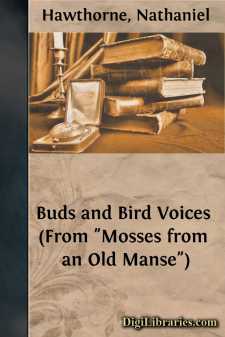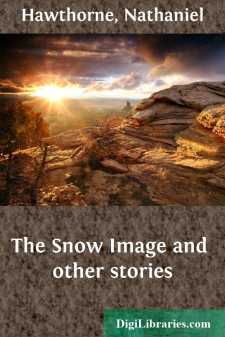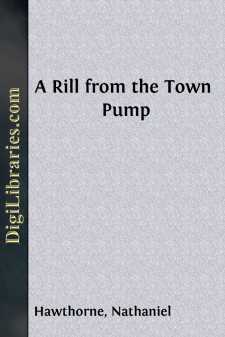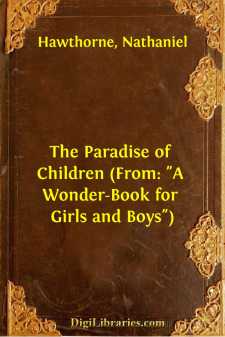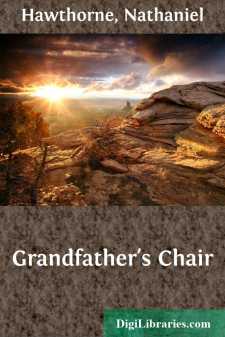Categories
- Antiques & Collectibles 13
- Architecture 36
- Art 48
- Bibles 22
- Biography & Autobiography 813
- Body, Mind & Spirit 142
- Business & Economics 28
- Children's Books 17
- Children's Fiction 14
- Computers 4
- Cooking 94
- Crafts & Hobbies 4
- Drama 346
- Education 46
- Family & Relationships 57
- Fiction 11829
- Games 19
- Gardening 17
- Health & Fitness 34
- History 1377
- House & Home 1
- Humor 147
- Juvenile Fiction 1873
- Juvenile Nonfiction 202
- Language Arts & Disciplines 88
- Law 16
- Literary Collections 686
- Literary Criticism 179
- Mathematics 13
- Medical 41
- Music 40
- Nature 179
- Non-Classifiable 1768
- Performing Arts 7
- Periodicals 1453
- Philosophy 64
- Photography 2
- Poetry 896
- Political Science 203
- Psychology 42
- Reference 154
- Religion 513
- Science 126
- Self-Help 84
- Social Science 81
- Sports & Recreation 34
- Study Aids 3
- Technology & Engineering 59
- Transportation 23
- Travel 463
- True Crime 29
Nathaniel Hawthorne
Nathaniel Hawthorne was a prominent American novelist and short story writer of the 19th century, known for his exploration of themes such as sin, guilt, and moral complexity. His most famous works include "The Scarlet Letter" and "The House of the Seven Gables," which are quintessential examples of dark romanticism. Hawthorne's writing often delves into the Puritanical history of New England, reflecting on the human condition and societal norms.
Author's Books:
Sort by:
Come! another log upon the hearth. True, our little parlor is comfortable, especially here, where the old man sits in his old arm-chair; but on Thanksgiving night the blaze should dance high up the chimney, and send a shower of sparks into the outer darkness. Toss on an armful of those dry oak chips, the last relics of the Mermaid's knee-timbers, the bones of your namesake, Susan. Higher yet, and...
more...
INTRODUCTORY NOTE. "Septimius Felton" was the outgrowth of a project, formed by Hawthorne during his residence in England, of writing a romance, the scene of which should be laid in that country; but this project was afterwards abandoned, giving place to a new conception in which the visionary search for means to secure an earthly immortality was to form the principal interest. The new...
more...
Balmy Springâweeks later than we expected and months later than we longed for herâcomes at last to revive the moss on the roof and walls of our old mansion. She peeps brightly into my study-window, inviting me to throw it open and create a summer atmosphere by the intermixture of her genial breath with the black and cheerless comfort of the stove. As the casement ascends, forth into infinite...
more...
One afternoon of a cold winter's day, when the sun shone forth with chilly brightness, after a long storm, two children asked leave of their mother to run out and play in the new-fallen snow. The elder child was a little girl, whom, because she was of a tender and modest disposition, and was thought to be very beautiful, her parents, and other people who were familiar with her, used to call...
more...
NOON, by the North clock! Noon, by the east! High noon, too, by these hot sunbeams, which fall, scarcely aslope, upon my head, and almost make the water bubble and smoke, in the trough under my nose. Truly, we public characters have a tough time of it! And, among all the town officers, chosen at March meeting, where is he that sustains, for a single year, the burden of such manifold duties as are...
more...
The moonbeams came through two deep and narrow windows, and showed a spacious chamber, richly furnished in an antique fashion. From one lattice, the shadow of the diamond panes was thrown upon the floor; the ghostly light, through the other, slept upon a bed, falling between the heavy silken curtains, and illuminating the face of a young man. But, how quietly the slumberer lay! how pale his features!...
more...
TANGLEWOOD PLAY-ROOM. The golden days of October passed away, as so many other Octobers have, and brown November likewise, and the greater part of chill December, too. At last came merry Christmas, and Eustace Bright along with it, making it all the merrier by his presence. And, the day after his arrival from college, there came a mighty snow-storm. Up to this time, the winter had held back, and had...
more...
CHAPTER I. GRANDFATHER AND THE CHILDREN AND THE CHAIR. GRANDFATHER had been sitting in his old arm-chair all that pleasant afternoon, while the children were pursuing their various sports far off or near at hand, Sometimes you would have said, "Grandfather is asleep;" hut still, even when his eyes were closed, his thoughts were with the young people, playing among the flowers and shrubbery of...
more...
TO A FRIEND. I have not asked your consent, my dear General, to the foregoing inscription, because it would have been no inconsiderable disappointment to me had you withheld it; for I have long desired to connect your name with some book of mine, in commemoration of an early friendship that has grown old between two individuals of widely dissimilar pursuits and fortunes. I only wish that the offering...
more...
INTRODUCTION THE first three numbers in this collection are tales of the White Hills in New Hampshire. The passages from Sketches from Memory show that Hawthorne had visited the mountains in one of his occasional rambles from home, but there are no entries in his Note Books which give accounts of such a visit. There is, however, among these notes the following interesting paragraph, written in 1840 and...
more...




